European elections: What you need to knowpublished at 11:50 BST 14 May 2019
Who can vote in the elections and when will the results be announced?
Read MoreMinister updated MPs on funding for replacing cladding on private tower blocks
Minister responded to urgent question on refugees in Sri Lanka
MPs debated treatment for those with acquired brain injuries
They also held a debate on 25th anniversary of death of former Labour leader John Smith
Andrea Leadsom announced parliamentary business for next week
Who can vote in the elections and when will the results be announced?
Read MoreMinisters had previously said owners of private residential tower blocks in England should foot the bill.
Read MoreThe House of Commons has now finished for the week, and with that we'll be closing our live coverage for today.
Neither the Commons nor the Lords will be sitting tomorrow, but they will both be back next Monday afternoon.
MPs have now started the first of two debates this afternoon on subjects chosen by the backbench business committee.
The first of these is on treatment and rehabilitation for those with acquired brain injuries.
The second will be on the legacy of former Labour leader John Smith, 25 years after his death in May 1994.
Leader of the Commons tweets
Allow X content?
This article contains content provided by X. We ask for your permission before anything is loaded, as they may be using cookies and other technologies. You may want to read X’s cookie policy, external and privacy policy, external before accepting. To view this content choose ‘accept and continue’.
Hello and welcome to our updates from today’s action in the House of Commons.
Later this morning, there will be an urgent question on refugees in Sri Lanka, before Andrea Leadsom updates MPs on next week's Commons business.
MPs will no doubt be waiting to see whether the government schedules a vote next week on the bill implementing the PM's Brexit deal.
Number 10's spokesman has said it is the government's "hope and expectation" to bring the withdrawal agreement bill in ahead of this month’s European elections.
After this, there will be a ministerial statement on government funding for replacing Grenfell Tower-type cladding on about 150 private blocks in England with a safer alternative.
This afternoon, there will be backbencher-led debates on acquired brain injuries, and the 25th anniversary of the death of former Labour leader John Smith.
Before that though, Environment Secretary Michael Gove will take questions from MPs during a departmental scrutiny session.
MPs in the Commons have moved onto an adjournment debate on social action, but we're going to close our live coverage here. Thank you for joining us.
In the meantime, here are some of our top stories from Wednesday:
TV Licences for over-75s debate
 House of Commons
House of Commons
Parliament
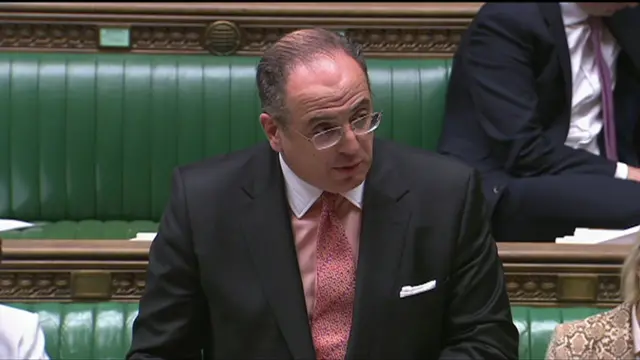 Image source, HoC
Image source, HoCCulture Minister Michael Ellis says "this government on this subject has confidence in the BBC".
"It is crucial to the BBC's success that it is independent from government," he adds, saying it is "entirely right" it is operationally independent.
"The future of the concession is entirely the BBC's decision," he states.
The government is awaiting the decision from the BBC due next month, he says.
TV Licences for over-75s debate
 House of Commons
House of Commons
Parliament
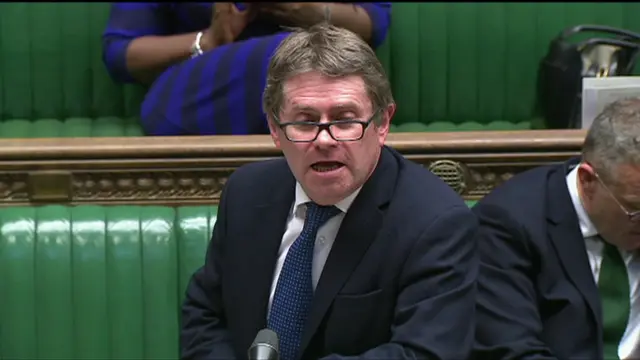 Image source, HoC
Image source, HoCShadow culture minister Kevin Brennan says "you can't pass the parcel with social policy like this, and call yourself a responsible government".
He argues that the BBC only agreed to the license fee changes in the same way victims of robbery agree to hand over their valuables.
"The government's whole approach to this has been underhand, aggressive, and based on bullying," he states.
"Older people are not stupid," he says, adding that "they'll see this for what it is".
TV Licences for over-75s debate
 House of Commons
House of Commons
Parliament
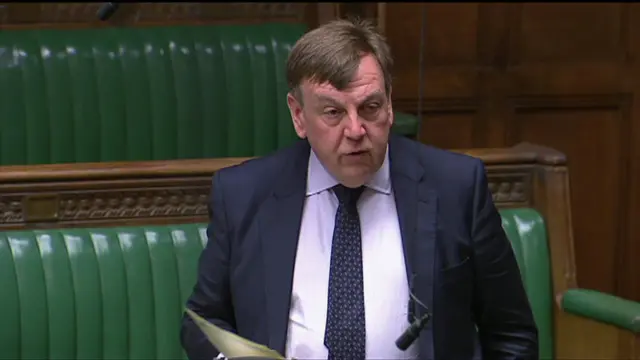 Image source, HoC
Image source, HoCFormer culture secretary John Whittingdale, who was in office when the settlement was reached in 2015 with the BBC, says free TV licences are "not a fundamental pillar of the welfare state".
At the time, this benefit from the government cost £365m, and was paid directly to the BBC by the Department for Work and Pensions. Last year, the benefit cost the government £660m, he says.
"The negotiations with the BBC were indeed, robust," he continues.
The licence fee at the time was extended to close the iPlayer loophole, he adds, and at the time, the BBC said it was the "right deal in difficult economic circumstances".
TV Licences for over-75s debate
 House of Commons
House of Commons
Parliament
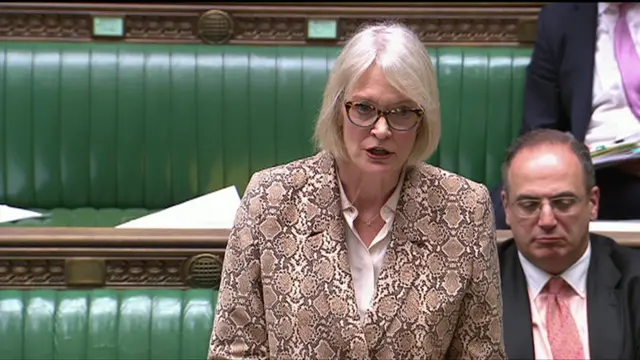 Image source, HoC
Image source, HoCResponding to Mr Watson's opening statement, Culture Minister Margot James tells MPs that the government has now allowed the licence fee to rise in line with inflation for the first time since 2010.
She says the BBC promised to consult if they wanted to end the concession for over-75s, and are yet to report on their findings.
She says she recognises that this benefit is "particularly valued" for older people, especially in combating loneliness.
At the time, she says, BBC Director General Tony Hall said guarantees made by the government covered more than the cost of continuing free TV Licences for that age group.
Labour MP tweets
Allow X content?
This article contains content provided by X. We ask for your permission before anything is loaded, as they may be using cookies and other technologies. You may want to read X’s cookie policy, external and privacy policy, external before accepting. To view this content choose ‘accept and continue’.
 Jonathan Marcus
Jonathan Marcus
BBC Diplomatic and defence correspondent
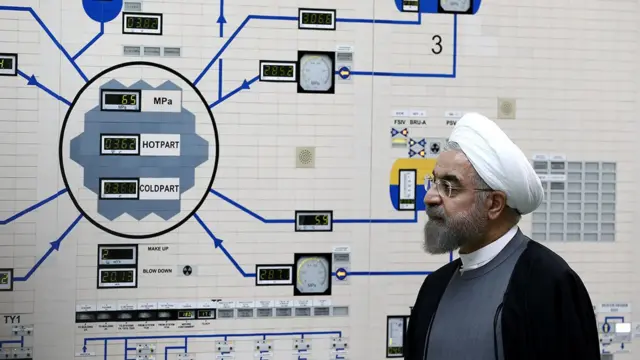 Image source, AFP
Image source, AFPThe Trump administration must see its goal - the collapse of the accord - as now being in sight. Read more.
TV Licences for over-75s debate
 House of Commons
House of Commons
Parliament
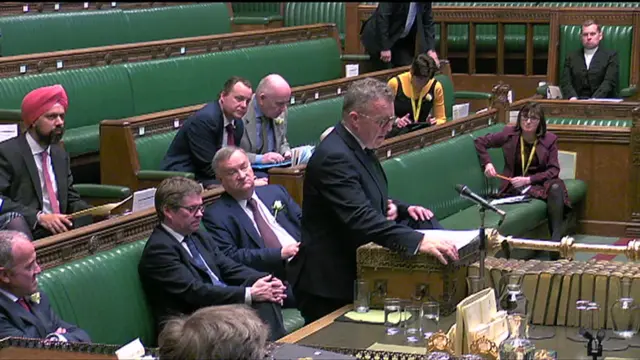 Image source, HoC
Image source, HoCIntroducing the debate, shadow culture secretary Tom Watson says that this debate is about "keeping a promise" which was made by the Conservatives in their election manifesto in 2017.
He says the Conservatives guaranteed to keep all pensioner-age benefits that currently exist for the duration of the current Parliament.
TV Licences for over-75s debate
 House of Commons
House of Commons
Parliament
 Image source, Press Association
Image source, Press AssociationThe Commons is now moving to their Opposition Day Debate on free TV Licences for over-75s.
This topic was chosen by the Labour Party.
Age UK has warned that scrapping of free TV Licences for over-75s could push 50,000 older people into relative poverty.
Free TV Licences were introduced in 2000. The current government has made moves to scrap the benefit for the age group.
Scrapping of the payments from government will result in a loss of around £750m annually.
The BBC has warned it may not be able to sustain free TV Licences for the age group.
Ten Minute Rule Bill
 House of Commons
House of Commons
Parliament
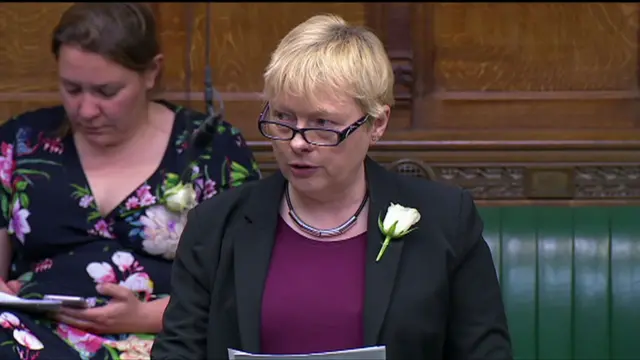 Image source, HoC
Image source, HoCLabour MP Angela Eagle is introducing her Ten Minute Rule Bill to require transparency on pension charges, and to limit such charges.
She warns that pensions are a "failing market" and have "dysfunctional" pricing structures.
The high profits for those providing these services is showing a market failure, she adds.
Ten Minute Rule Bills are a type of private member's bill. It is highly unlikely to progress without government support.
A Tory MP tells Theresa May she has "failed and should step aside", but the PM insists the Brexit impasse is "not an issue about me".
Read MoreJeremy Corbyn says the PM could learn from Liverpool manager Jurgen Klopp on how to "get a good result in Europe".
Read More House of Commons
House of Commons
Parliament
Now onto the urgent question about the Iran nuclear deal, brokered under former US President Barack Obama in 2015. It was designed to bring Iran in from the geo-political cold and curb its nuclear ambitions, but the landmark agreement was thrown into flux when President Trump announced the US withdrawal a year ago, and now Iran is suspending its commitments too.
Foreign Office minister Mark Field says the UK “notes with great concern” Iran's decision,
Mr Field says the government urged Iran not to take further “escalatory steps” and added that there “would be consequences” if Iran ceased to meet its commitments.
 House of Commons
House of Commons
Parliament
Tory MP Julian Lewis, who chairs the defence committee, says there is a 2017 law which requires companies in China to co-operate with the country's intelligence services.
He says it would therefore be "naive to the point of negligence" to allow Chinese telecoms firm Huawei to be involved in constructing critical national infrastructure in the UK.
He says MPs should thank present and former ministers who opposed the company's involvement in the building of the UK's wireless network.
Theresa May replies that the government is taking a "robust risk-based approach" and is not considering any options that would threaten communications infrastructure.
Huawei has denied there is any risk of spying or sabotage, or that it is controlled by the Chinese government.